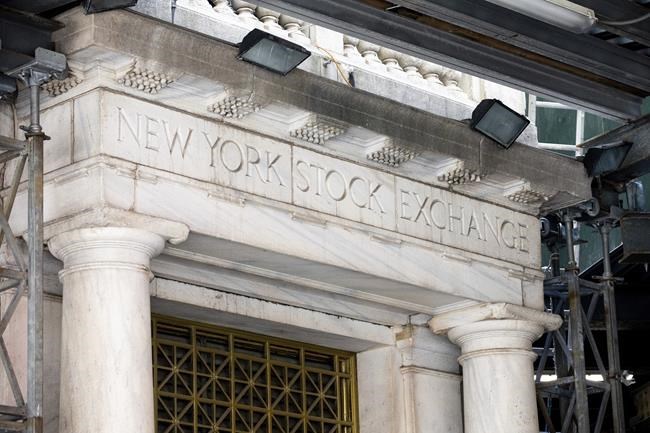NEW YORK (AP) — Wall Street is still largely stuck in neutral Thursday following its big recent swings.
The S&P 500 was virtually unchanged in early trading and seems to be on track for a fourth straight quiet, mixed day. It’s been listless this week, coming off a sharp reversal after months of losses gave way to its best week of the year last week.
Even though its recent moves have been modest, if the S&P 500 ends the day with a gain, it would mark a ninth straight for its longest winning streak in 19 years.
The Dow Jones Industrial Average was up 11 points, or less than 0.1%, as of 9:40 a.m. Eastern time, and the Nasdaq composite was virtually flat.
The Walt Disney Co. was strong after becoming the latest big U.S. company to report stronger profit for the latest quarter than analysts expected. It rose 6% after saying it added more Disney+ streaming subscribers than Wall Street had forecast, while also increasing its target for annual cost savings.
Tapestry jumped 5.1% for another one of the biggest gains in the S&P 500 after the maker of high-end shoes and handbags beat Wall Street’s profit forecast
On the opposite end was Becton Dickinson, which sank 9.7%. The maker of medical equipment reported profit for the summer that matched Wall Street’s expectations, but its financial forecasts for its upcoming fiscal year fell short of some analysts’ estimates.
Lyft was another weight on the market and sank 3.4% despite beating analysts’ expectations for results during the summer.
The majority of companies has been topping Wall Street’s expectations for summertime profits, and businesses in the S&P 500 appear to be on pace to deliver their first overall growth in earnings per share in a year, according to FactSet. Those reports have largely been running in the background, though, as the focus in financial markets has remained fixed on what bond yields are doing.
The yield on the 10-year Treasury ticked up to 4.53% from 4.50% late Wednesday after a report suggested the U.S. job market remains remarkably solid.
Fewer workers applied for unemployment benefits last week than economists expected. That’s good news for workers generally, indicating few layoffs, and for the economy. But it could also be adding upward pressure on inflation, which the Federal Reserve has been trying to corral through high interest rates.
High rates and yields hurt prices for stocks and other investments, while slowing the economy and raising the pressure on the financial system.
A swift rise in the 10-year Treasury yield that began in the summer earlier knocked the S&P 500 down by more than 10% from its peak for the year. The 10-year Treasury yield briefly topped 5% to reach its highest level since 2007, as it caught up with the Federal Reserve’s main interest rate, which is above 5.25% and at its highest level since 2001.
Last week, though, investors took comments from Fed Chair Jerome Powell to indicate that the central bank’s hikes to interest rates may be done. He said the summer’s jump in Treasury yields could substitute for further hikes to rates if they remain persistent. That triggered a sharp easing in Treasury yields, which in turn helped stocks to rally.
This week has seen financial markets largely try to digest all the sharp movements.
In the oil market, crude prices regained some of their big losses from earlier in the week. A barrel of U.S. crude added 1.4% to $76.36, and Brent crude, the international standard, gained 1.4% to $80.66. Both, though, remain down roughly 5% for the week so far amid worries about supplies outstripping demand.
In stock markets abroad, indexes were mostly higher across Europe and Asia. Japan’s Nikkei 225 rose 1.5% after Prime Minister Fumio Kishida told local reporters he had decided against calling an election before the end of the year.
___
AP Business Writers Matt Ott and Elaine Kurtenbach contributed.
Stan Choe, The Associated Press



